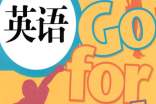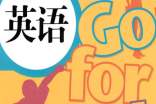介绍春节的英语演讲稿2分钟
The last day of the lunar year, called "New Year's eve," hakka also called "night" this sum. The first day, the first lunar month on the first day of the lunar year, commonly known as for the day, with 2, 3 is called the Spring Festival. Hakka covers the Chinese New Year Spring Festival, from the lunar December 24th in years, until the 15th day of the lantern.
By December 25, we all call "into the years of world" which means that today is New Year, so families will be in his own home, cleaning, office necessities and stuffed tofu, cook heap (rice cake)...
The thirty on New Year's eve, families will be in the house, then for the first point set off firecrackers: our local called "take the lead". By early in the morning, open the door, the first thing is to put a string of firecrackers, this is good start. Hakka people, we call junior "des day", that day, the accumulation of filth thoroughly clean sweep out, called "send off".
In the January 4. Woke up business is sweeping the floor, took a brush from the outside, to sweep goods into; Farmers said it was a day to eat garlic and pig, said ate chee, garlic, ACTS as "and" long in the New Year.
This is our hakka celebrate the Spring Festival customs.
农历年的最后一天,称“除夕”,客家人又叫“大年晡夜”。正月初一,即农历一年中的首日,俗称为大年初一,与初二、初三称为春节。客家人的过年涵盖了春节,从农历十二月二十四日就进入年界,直到正月十五出元宵。
到了十二月二十五后,我们都叫“入年界”意思就是过了今天新年就算是到来了,所以各家各户都会在自己的家里,打扫卫生,办年货,酿豆腐,做煎堆(年糕)……
到了年三十的除夕之夜,各家各户都会在子时一到时,争抢第一个点放鞭炮:我们当地叫“打头炮”。而到了年初一的早上,打开门的第一件事也是放一串鞭炮,这就叫开门红。我们客家人把年初三称为“穷鬼日”,那天,把堆积的'秽物彻底干净地清扫出去,叫“送穷鬼”。
到了正月初四。做生意的则一早起来就扫地,自外朝里扫,表示要把财扫进;农民说这一天要吃蒜和猪肠,说吃了猪肠、蒜,新年做起事来“长长有和算”。
这就是我们客家人的过春节风俗。
版权声明
本站文章收集于互联网,仅代表原作者观点,不代表本站立场,文章仅供学习观摩,请勿用于任何商业用途。
如有侵权请联系邮箱tuxing@rediffmail.com,我们将及时处理。本文地址:https://www.wuliandi.com/zuowen/yyzw/yyyjg/202203/2834481.html








